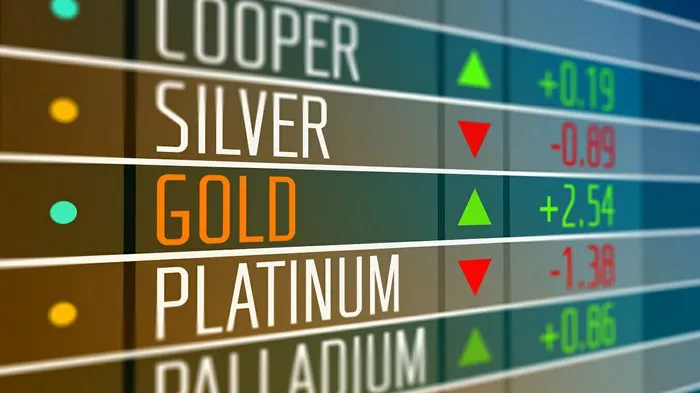Copper futures contracts serve as essential instruments for market participants seeking exposure to copper prices and managing price risk in the global commodities markets. As investors and traders explore the potential of copper futures contracts, one fundamental question arises: How much is a copper futures contract? In this article, we delve into the pricing mechanics, contract specifications, and factors influencing the value of copper futures contracts.
Understanding Copper Futures Contracts
Copper futures contracts represent agreements to buy or sell a specified quantity of copper at a predetermined price on a future date. These contracts enable market participants, including producers, consumers, traders, and investors, to hedge against price volatility and speculate on future price movements in the copper market. Futures contracts serve as essential risk management tools, providing liquidity, transparency, and price discovery for the copper industry.
Pricing of Copper Futures Contracts
The price of a copper futures contract is determined by the prevailing market conditions, supply-demand dynamics, and investor sentiment in the copper market. Several key factors influence the pricing of copper futures contracts:
Spot Price of Copper: The spot price of copper, also known as the current market price, serves as the primary reference point for pricing futures contracts. The spot price reflects the immediate supply-demand balance and prevailing market sentiment in the copper market.
Time to Expiration: The time remaining until the expiration date of the futures contract affects its price. Futures contracts with longer expiration periods typically command higher prices than contracts with shorter expiration periods, reflecting the time value of money and the potential for price fluctuations over time.
Cost of Carry: The cost of carry refers to the expenses associated with holding a physical commodity, such as storage costs, insurance, financing charges, and opportunity costs. In the case of copper futures contracts, the cost of carry influences the pricing of deferred-month contracts relative to nearby-month contracts.
Interest Rates: Interest rates play a role in determining the pricing of copper futures contracts, particularly for deferred-month contracts. Higher interest rates may increase the cost of financing long futures positions, putting downward pressure on contract prices.
Market Sentiment and Speculative Activity: Market sentiment and speculative trading activity can impact the pricing of copper futures contracts in the short term. Bullish or bearish sentiment among traders, news events, economic indicators, and geopolitical developments can influence price movements and trading volumes in the copper futures market.
Contract Specifications
Copper futures contracts have specific contract specifications established by commodity exchanges to standardize trading terms and facilitate liquidity. Key contract specifications for copper futures include:
Contract Size: The contract size defines the quantity of copper represented by a single futures contract. For example, a standard copper futures contract may represent 25,000 pounds of copper.
Price Quotation: Copper futures contracts are quoted in cents per pound, with each cent representing $25 per contract. For instance, if the price of a copper futures contract is quoted at 400 cents per pound, the contract’s total value would be $10,000 (400 cents x $25).
Expiration Date: Each copper futures contract has a specified expiration date, indicating the last trading day for the contract. After the expiration date, futures positions must be settled through physical delivery or cash settlement.
Trading Hours: Copper futures contracts trade on commodity exchanges during specified trading hours, allowing market participants to buy and sell contracts electronically or through open outcry trading.
Factors Affecting Copper Futures Contract Prices
Several factors influence the prices of copper futures contracts, including:
Global Demand and Supply: Changes in global demand for copper, driven by economic growth, infrastructure development, and industrial activity, can impact copper futures prices. Similarly, disruptions to copper supply, such as labor strikes, mine closures, or geopolitical tensions, can affect market sentiment and contract prices.
Economic Indicators: Economic indicators, such as gross domestic product (GDP) growth rates, manufacturing output, construction spending, and consumer confidence, provide insights into the health of the global economy and can influence copper futures prices.
Currency Exchange Rates: Copper futures prices are denominated in U.S. dollars (USD) on most commodity exchanges, making them sensitive to fluctuations in currency exchange rates. A weaker USD relative to other currencies can increase demand for copper and drive prices higher in USD terms.
Trade Policies and Tariffs: Changes in trade policies, tariffs, and trade tensions between major economies can impact global trade flows and copper demand. Trade disputes or protectionist measures that disrupt international supply chains may affect copper futures prices.
Conclusion
In conclusion, the pricing of copper futures contracts is influenced by various factors, including the spot price of copper, time to expiration, cost of carry, interest rates, market sentiment, and contract specifications. By understanding the pricing mechanics and factors affecting copper futures contract prices, market participants can make informed trading decisions, manage risk effectively, and navigate the dynamic landscape of the copper futures market with confidence. As a vital industrial metal with diverse applications, copper continues to play a crucial role in global economic development, infrastructure investment, and technological innovation, making copper futures contracts indispensable instruments for risk management and investment strategies in the commodities markets.


